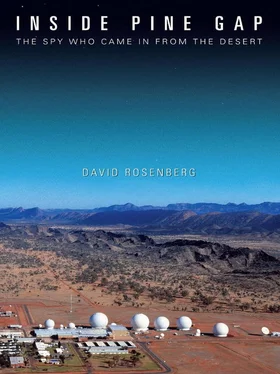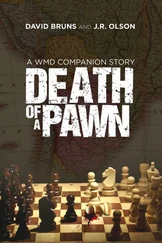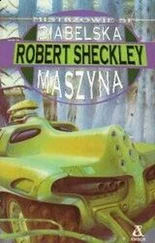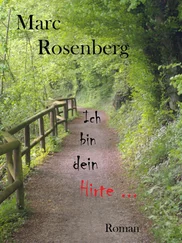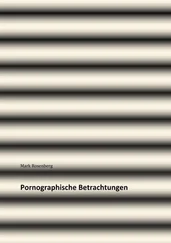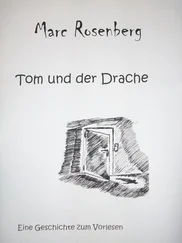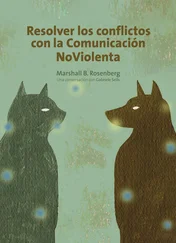I started by buying a copy of the Peterson’s College Placement Annual for Engineering and Physical Science Majors , which listed companies and job descriptions for graduates. I then applied to about thirty engineering companies around the United States and some government agencies such as the Defense Mapping Agency, Central Intelligence Agency (CIA), the Secret Service and the NSA. For all these applications, only two organisations wanted to meet me: the CIA and the NSA. Perhaps it was because I’d never undertaken any work-study while at university, instead choosing to unwind from semesters of intense study working over the summers with friends at a camp for children at Camp Blue Ridge in Mt City, Georgia.
Working for either the CIA or the NSA was an exciting prospect and secretly a lifelong dream, but before I applied to these agencies I had also applied for an interview with the Federal Bureau of Investigation (FBI) through an advertisement in the Miami Herald . The FBI was recruiting for the prestigious position of special agent. I knew the process would be highly competitive but actually the initial interview was relatively easy: a group of about ten of us performed various tests that assessed our reaction to guns and how well we handled them. For example, we were evaluated on how many times we could pull the trigger on a handgun in thirty seconds and how steady we could hold and aim a rifle. Our recall ability was evaluated by showing us a picture, removing it, and then asking us questions about what was in the image. I found out I’d done well when I received a phone call asking me to return for a second interview.
I met with a special agent in the Miami office for a formal interview designed to determine my suitability for the FBI. I was asked questions about my parents, friends and others I associated with—clearly the Bureau was concerned about people who might be potentially undesirable foreign nationals. So far, so good, as I didn’t have any friends from Russia, Libya, Iran, China, Cuba or any other communist country. But then we hit a roadblock when I was asked about any illegal drugs I’d taken. In college I had occasionally smoked marijuana with friends. The special agent, a man close to fifty, asked how many times I had smoked pot. I responded that a conservative estimate would be around twenty times. He told me the acceptable number was ten, so since I’d clearly exceeded the limit I was immediately excluded from becoming a special agent.
When I asked my interviewer why smoking pot more than ten times excluded me, he responded with something like, ‘Imagine you’re a special agent and you arrest someone for illegal drug use. In court, that person’s lawyer will ask you whether you have ever used an illegal drug. You will have to answer “Yes”. The lawyer will then ask how you could arrest someone for the same offence you’ve been guilty of.’ Listening to his explanation, I realised he wasn’t going to allow my application to proceed. His logic didn’t entirely make sense to me—what about police officers who were guilty of speeding but still issued speeding tickets? And I couldn’t help but wonder what his response would have been if I’d said I’d only smoked pot nine times. Regardless, although I knew that I would have made a very competent special agent, I thanked him and left.
I was now down to two choices: the CIA and the NSA.
Most Americans had heard of the CIA, but I wasn’t very familiar with the NSA. After researching both agencies and learning more about the secret work they did, I felt I’d be happy in either since both used special electronic devices and satellites designed to spy on America’s enemies. The CIA probably appealed more to me, at least initially, simply because I’d heard of the organisation and it had a more sophisticated and ‘sexy’ reputation than the NSA.
In early 1985 I took the next step towards working for the CIA, completing a written evaluation at a university campus in Miami as part of the agency’s pre-selection process. The classroom held about thirty to forty people, many of whom were Hispanic but most appeared to be Anglo-American. The written assessment was filled with general aptitude questions in three different sections.
I learnt that I’d passed a month later when I received the thick CIA application in the mail. Most of the paperwork consisted of a Personal History Statement—Part 1, the Position Application, and the Personal History Statement—Part 2, the Clearance Application, copies of which I’ve kept to this day. I had to account for my entire life in this paperwork, including the position I desired, where I was willing to work, typing skills, foreign travel history, foreign language ability, hobbies, family history, former residences and personal references. I had to provide my education history, including whether I worked while attending university, my Grade Point Average (GPA) in my major, senior year and overall, why I chose my major, and which courses I liked best and least. The list went on. It also asked for my employment history, why I wanted to work for the CIA, other careers I had considered, current employment duties, and my area of expertise. Other interesting questions were: ‘How do you spend your leisure time? What books or periodicals do you read regularly? What is your principal asset? What is your principal shortcoming?’ And, my favourite, ‘Who are you?’ Finally, I had to write a description of my personality.
There was also a Writing Skills assignment that required me to author a paper of 500 words or more on a subject of major current international interest. I wondered what subjects would appeal to the CIA. Perhaps essays that presented ideas on how to ‘neutralise’ some of America’s perceived enemies? After contemplating the subject for a couple of days, I decided to write about a part of the world the CIA was undoubtedly very interested in: the Middle East. Seventeen months earlier, Islamic Jihad had claimed responsibility for the Beirut barracks bombing that killed 299 servicemen, including 220 US Marines. [1] http://en.wikipedia.org/wiki/1983_Beirut_barracks_bombing
I chose to write about the political and social instability in Beirut and the religious, political and class conflicts that were all factors in a country that was very close to experiencing anarchy. After examining the causes of the crisis in Lebanon, I pointed out that there were two regional leaders who were responsible for fuelling the emotions of the populous and who should be considered in any proposed solution. Reading it now, twenty-five years later, I am struck by how Lebanon has still not managed to establish a unified identity and continues to be strongly influenced by outside forces. In some respects, time has marched in place, not forward.
I submitted my voluminous application to the CIA in March 1985 and waited for its reply. Two months later I received a letter telling me the agency wanted to meet with me in Virginia.
In August, the CIA flew me to its headquarters in Langley, Virginia—the same address I knew from television and movies—for a relatively simple interview. When I passed the security checkpoint and was directed to the visitors’ parking area, I could barely believe I’d actually been allowed into one of the world’s most secretive spy agencies.
I was amazed at the size of CIA headquarters. It was an impressive building with an immense entrance hallway, and as I glanced across the room I noticed a large granite CIA seal on the lobby floor and block letters etched in stone on the wall. Moving towards the letters I read the biblical quote from John 8:32: ‘AND YE SHALL KNOW THE TRUTH AND THE TRUTH SHALL MAKE YOU FREE.’ As I looked around the room my eyes were drawn to the Memorial Wall, which contained many stars, each representing a CIA officer who had made the ultimate sacrifice. I felt an overwhelming sense of pride in my country and for those who had served with such dedication and heroism. I knew then that I desperately wanted to be a part of this community.
Читать дальше
